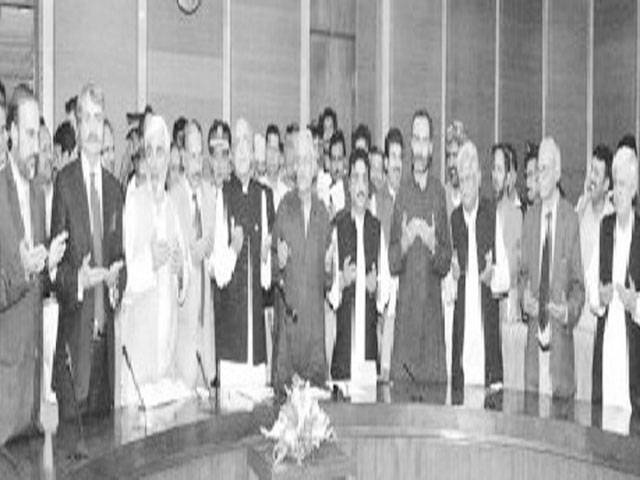“Pakistan has been made a soft state where the supremacy of law is questioned. This situation can not be tolerated any more.
–Pervez Musharraf
The Eighteenth Amendment of the Constitution of Pakistan was passed by the National Assembly of Pakistan on April 8, 2010, removing the power of the President of Pakistan to dissolve the Parliament unilaterally, turning Pakistan from a semi-presidential to a parliamentary republic, and renaming North-West Frontier Province to Khyber Pakhtunkhwa.
This was for the first time that a Parliament refused to validate martial law. The Parliament formed after 1985 elections endorsed the changes made during martial law of Gen Ziaul Haq and Parliament set up after 2002 elections validated tampering with the Constitution done by Gen Pervez Musharraf.
In another first, this constitutional amendment has eliminated the chance of any martial law in future. Although Gen Ayub Khan abrogated the Constitution of 1956, no military dictator has ever done this with the Constitution of 1973. Instead, it was either suspended or held in abeyance to capture power whereas Supreme Court of Pakistan validated these adventures.
The 18th Amendment has broadened the definition of treason through changes in Article 6 bringing in loop the judges who would validate in addition to generals thus ending an era of doctrine of necessity. Article 6 (2A) reads: “An act of high treason mentioned in clause 1 or clause 2 shall not be validated by any court including the Supreme Court and a High Court.”






